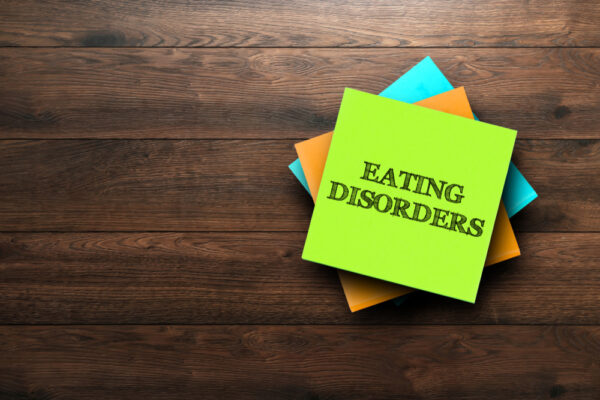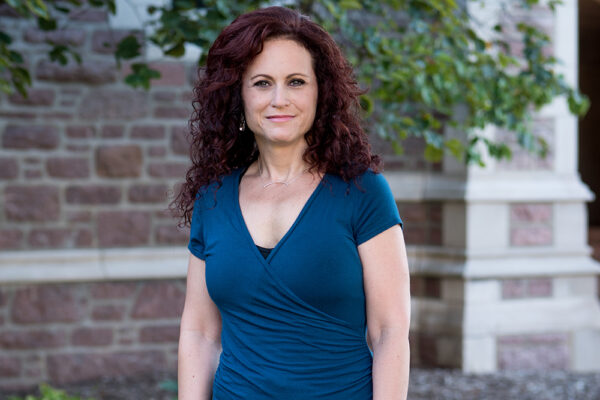Anniversaries are an opportunity to recognize important events in our lives — both good and bad — and reflect on how they have shaped us. There will be no shortage of anniversaries this month.
There are the big anniversaries, like the March 11 anniversary of the World Health Organization declaring the global COVID-19 pandemic. And there are also the smaller, more personal anniversaries: the day students left school for spring break to never return, the day the office closed, the last time seeing family in person. Each of these anniversaries can elicit a wide range of emotions, according to Rebecca Lester, professor of sociocultural anthropology in Arts & Sciences at Washington University in St. Louis.

“People have shared so many different feelings: loss, loneliness, hopelessness, anxiety, depression, boredom, frustration. A lot of us are feeling these things, but for some people they are much more intense, especially for those who have lost access to people or activities that have helped them manage difficult feelings in the past,” Lester said.
“Right now, though, it is an incredibly productive opportunity for stocktaking, for reassessing what we value, and for taking a close look at who and what we want in our lives going forward. As we move into our new normal, we have the opportunity to craft what that normal will be.
“Reflecting on the past year and what we have learned is an excellent way to begin charting our new paths forward.”
Lester offered the following advice for looking back and moving forward:
You have talked about the importance of creating rituals to recognize the passage of time and transitions. What are some healthy ways we can mark the upcoming anniversary?
I definitely think there’s value in reflecting on this past year. When we went into quarantine, we didn’t know it would last this long and it took some time for the reality to sink in. We all then individually and collectively went through a process of grieving and adapting to the loss of our former lives. It’s been an unprecedented time. Our lives and our relationships — with others and with ourselves — have transformed in profound ways. Journaling, meditating or simply taking time to reflect on the past year is a wonderful way to mark this anniversary. It’s a great opportunity to reflect upon how you adapted to these changes — the good, the bad and the ugly — and what you have learned about yourself and what you value.
How do we move forward?
I think some things will go back to normal fairly quickly, but others might take quite some time. The first time we’re in a crowd without a mask, for example, it is likely to feel strange for many of us. We’ve gotten used to thinking of other people as potential threats, and ourselves as potentially dangerous. This will take some unlearning. But I think we will adjust.
One place that might see a more permanent change has to do with our work lives. Over the past year, the boundaries between our home lives and our professional lives have changed. During quarantine, we may have attended meetings from our living room or taught class from a bedroom. Email communications have multiplied exponentially because we don’t run into people in the hallways or break rooms like we used to. The expectations for constant work engagement have soared. I think this will be hard to roll back.
Do you think this pandemic experience will have long-lasting impact on us as a generation?
Absolutely. I especially think this will shape younger generations who are going through this. I have a teenager, and I’ve watched how it has affected her as her schooling and social life transitioned to online and she was spending all day every day at home. Important events and milestones have been missed or delayed for many kids. I also imagine there will be some ground to make up educationally for students, despite the truly heroic efforts of many wonderful teachers.
But even more than young people’s social lives and education, we have all had to contend with profound experiences of vulnerability and fear on a level that many of us have never encountered before. This shared nature of this vulnerability could, in theory, be a source of solidarity and strength. And for some people, it has been. Unfortunately, it has also brought out some of the uglier dimensions of our society, as public health measures became deeply politicized and a zero-sum mentality prevailed. Younger generations have watched all of this unfold. I think it remains to be seen how this might impact these generations’ faith and trust in our leaders and how they think about shared burdens in the future.
One positive to come of this, perhaps, is the fuller recognition that the entire world is deeply connected, and that what we do here affects people across the globe, and vice versa.



